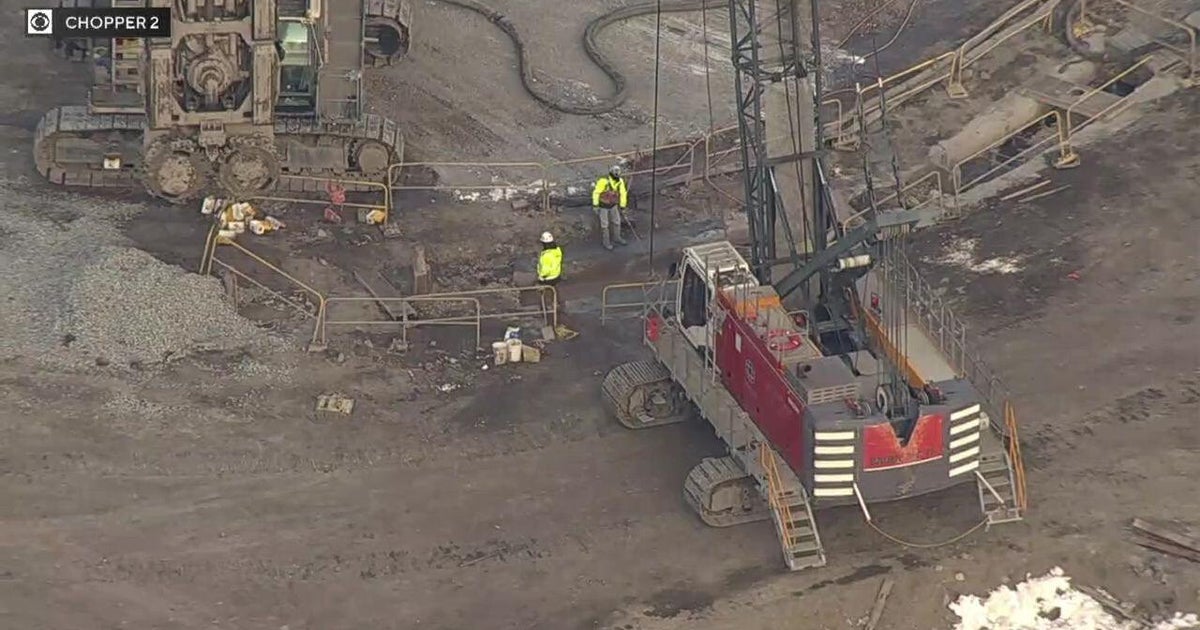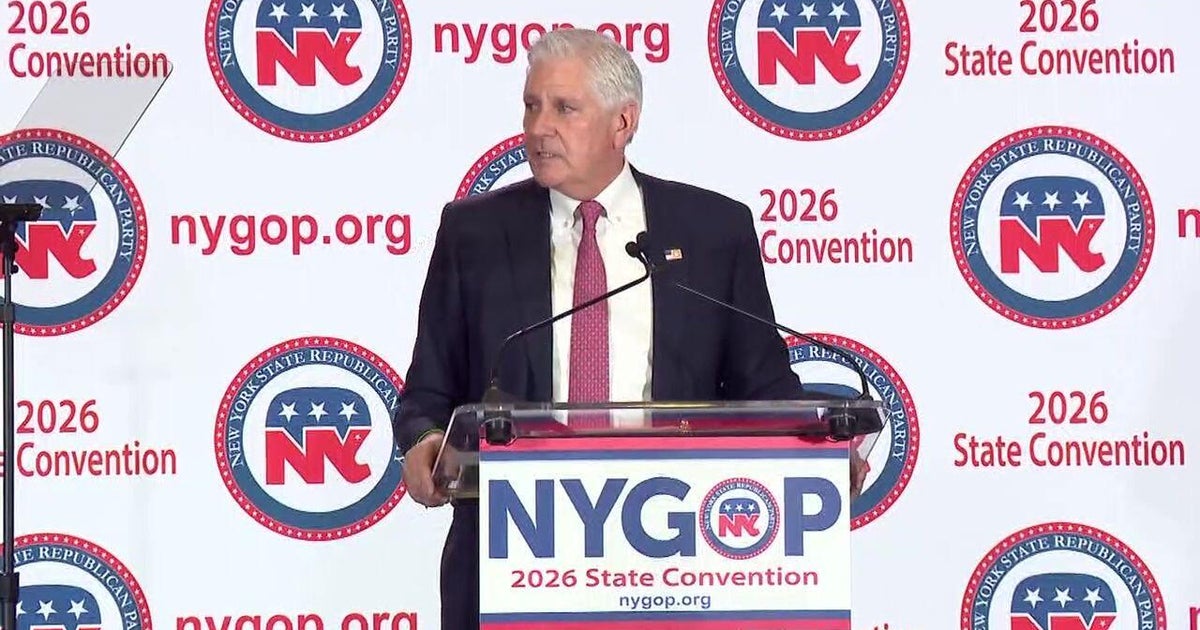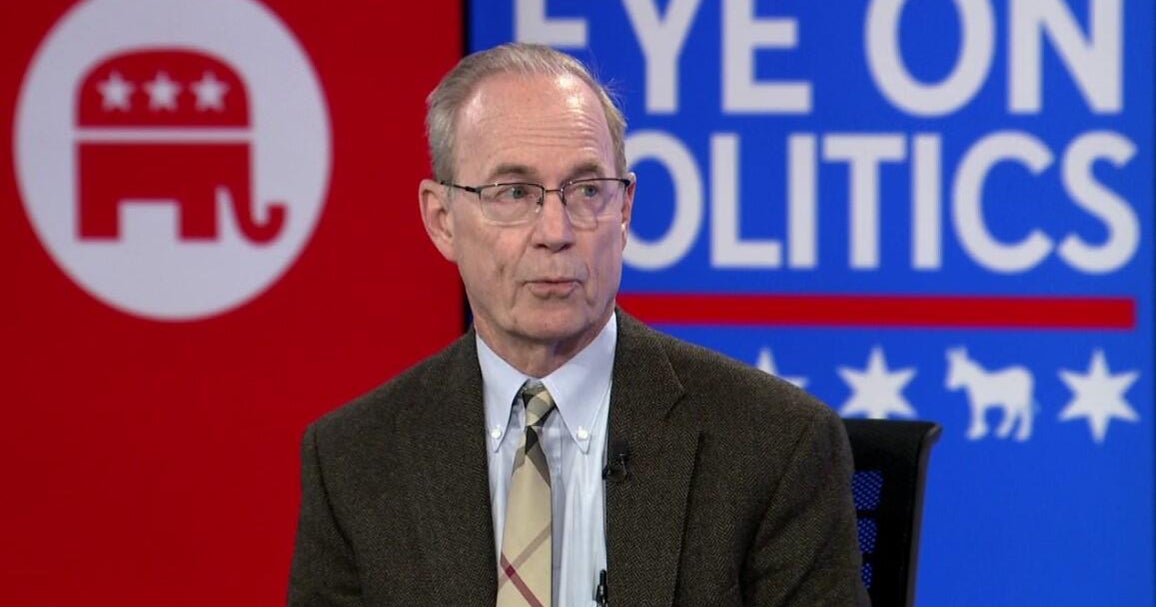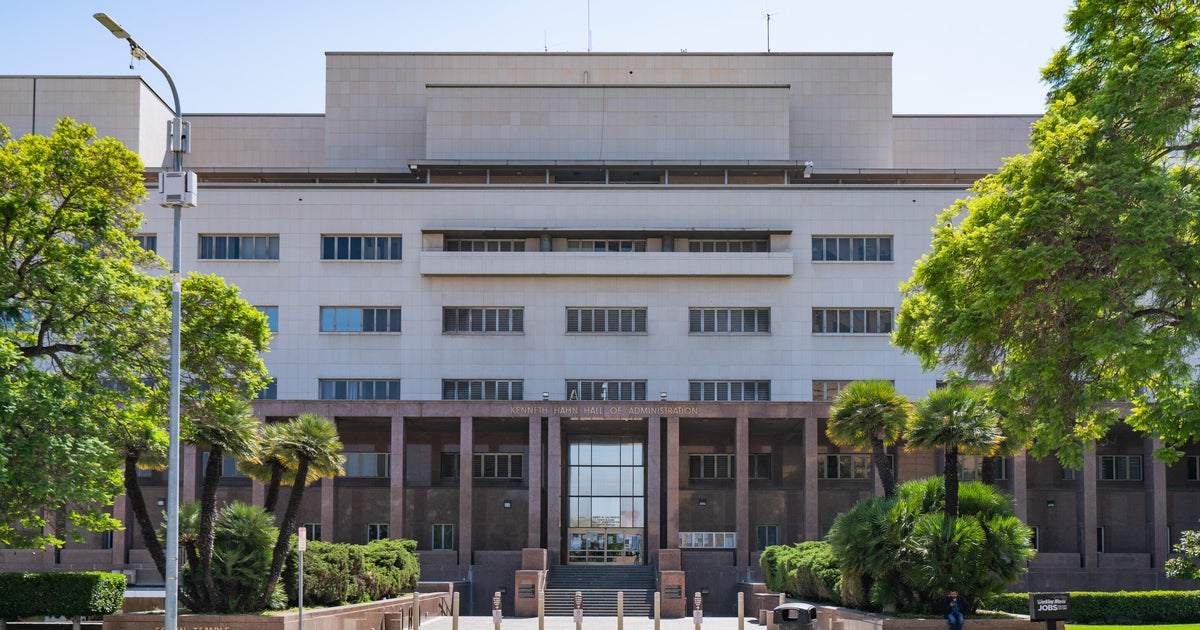Republican Leaders: Border Wall Will Cost Up To $15 Billion To Construct
PHILADELPHIA (CBS/AP) — Congress will move legislation this year providing up to $15 billion to build a wall along the Mexican boundary, Republican leaders said Thursday. But they would not say how they would prevent the massive project from adding to federal deficits.
House Speaker Paul Ryan, R-Wis., and Senate Majority Leader Mitch McConnell, R-Ky., told reporters at a GOP strategy retreat that they were planning legislation providing $12 billion to $15 billion for constructing the wall, one of President Donald Trump's chief goals. Ryan said the goal is to complete that and other major bills in 2017, but the leaders offered no details on how the wall would be paid for, saying they would wait until the Trump administration proposes legislation.
Trump has repeatedly said Mexico will pay for the wall, but Mexican leaders oppose it and have said they won't finance it.
Congress will pay for "the construction of the physical barrier on the border," Ryan said.
"We intend to address the wall issue ourselves," said McConnell.
Pressed on whether construction would increase federal deficits, Ryan said Republicans are fiscal conservatives. He said strengthening the economy and replacing President Barack Obama's health care system were two of the best ways to bolster the government's budget.
"If we're going to be spending on things like infrastructure, we're going to find the fiscal space to pay for that" in a budget Congress plans to write this spring, Ryan said.
Ryan had previously used figures ranging from $8 billion to $14 billion as his estimate for the cost of the wall.
Trump was to speak Thursday to House and Senate GOP lawmakers at their annual policy retreat. Despite a rocky start to his administration, many lawmakers are optimistic about delivering change in a new era of GOP control over Washington.
They would like to see a Trump committed to their agenda and results, not a president who veers off course into conspiracy theories about voter fraud or who keeps litigating the size of his inaugural crowds.
Before Trump's appearance, Ryan sketched out an ambitious agenda to lawmakers that includes sending Trump a health care repeal bill by March and a rewrite of tax laws by summer's end.
KYW Newsradio's Pat Loeb reports Ryan says he adopted a 200-day plan, instead of the traditional 100 days, to set a realistic goal for what he and McConnell call a "bold agenda," of repealing the Affordable Care Act and changing the tax code.
"I'm just so excited we finally have a chance to do this because we have the House and the Senate and a president who is with us," Ryan told MSNBC on Wednesday about plans to overhaul the tax system, eliminating what critics say are loopholes and lowering corporate rates to 20 percent or even the 15 percent sought by Trump.
"If you can clean up the cesspool of the tax code and give us a pro-growth tax code, that is how you grow the economy, that is how you take power and money out of Washington and give it back to the people," he said.
Ryan says this is going to be an unconventional president, but, in his words, "we're just all going to have to get used to" it.
Lawmakers were generally enthusiastic to see Trump take quick action on immigration, oil pipelines and other issues via executive order, even though they criticized Barack Obama for overusing such administrative tools when he was president. This time, Republican lawmakers justify it by saying Trump, in many cases, is undoing what Obama did.
Yet there were signs that Congress might not easily go along with fronting the money for Trump's border plan, which he continues to insist Mexico will ultimately pay for, though without explaining how.
Sen. Cory Gardner, R-Colo., would not commit to approving the billions Trump is seeking.
"Look, I haven't seen cost estimates, I don't know what exactly he's talking about," Gardner told CNN on Thursday. He said making good on border security was "an issue of trust with the American people."
For the GOP conference, Trump was visiting a city that he has singled out and criticized for supposed voter fraud. And the mayor has pledged to protect immigrants who are in the country illegally, in face of Trump's crackdown on "sanctuary cities."
Still, said GOP Sen. Bill Cassidy of Louisiana, "People are more optimistic, the stock market's rising, companies are deciding to build, folks look at him approving the Keystone XL pipeline. He said he wanted to create jobs. I think there's a sense that he's working hard to create jobs and I think that's incredibly positive."
As for Trump's fixation on supposed illegal voting by 3 million to 5 million people, which is untrue, and the attendance at his inauguration: "Those are distractions, and it's dwelled upon. I particularly don't care about it," Cassidy said.
Lawmakers also were to hear from Vice President Mike Pence and British Prime Minister Theresa May.
(TM and © Copyright 2017 CBS Radio Inc. and its relevant subsidiaries. CBS RADIO and EYE Logo TM and Copyright 2017 CBS Broadcasting Inc. Used under license. All Rights Reserved. This material may not be published, broadcast, rewritten, or redistributed. The Associated Press contributed to this report.)







